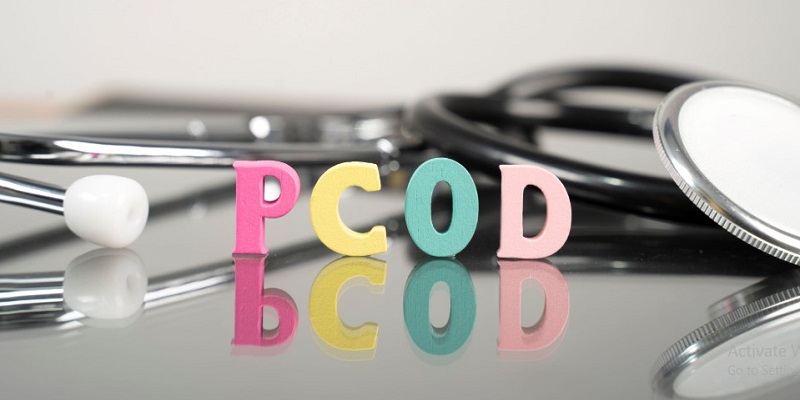
Understanding PCOD: Symptoms, Causes, and Management:-
Polycystic Ovarian Disease (PCOD) is a common hormonal disorder that affects women of reproductive age. It is often confused with Polycystic Ovary Syndrome (PCOS), but PCOD is a milder condition. In PCOD, the ovaries produce an excessive number of immature or partially mature eggs, which can lead to various health complications.
Symptoms of PCOD:-
The symptoms of PCOD can vary from woman to woman. Some of the most common signs include:
- Irregular Menstrual Cycles: Due to hormonal imbalances, women with PCOD often experience irregular, delayed, or heavy periods.
- Weight Gain: Many women with PCOD struggle with weight gain, especially around the abdomen.
- Acne and Oily Skin: Increased androgen levels can lead to excessive sebum production, causing acne and oily skin.
- Hair Thinning and Hair Loss: PCOD can result in thinning hair or hair loss, particularly on the scalp.
- Excessive Hair Growth (Hirsutism): Some women may notice excessive hair growth on the face, chest, or back due to elevated male hormones.
- Difficulty in Conceiving: PCOD can affect ovulation, making it harder for women to conceive naturally.
Causes of PCOD:-
The exact cause of PCOD remains unclear, but several factors contribute to its development:
- Hormonal Imbalance: An increase in androgens (male hormones) can interfere with the normal functioning of the ovaries.
- Insulin Resistance: Many women with PCOD have insulin resistance, which can lead to weight gain and further hormonal imbalances.
- Genetics: A family history of PCOD or related conditions can increase the risk of developing the disorder.
- Unhealthy Lifestyle: Poor diet, lack of exercise, stress, and inadequate sleep can trigger or worsen PCOD symptoms.
Managing PCOD:-
While there is no permanent cure for PCOD, its symptoms can be managed effectively through lifestyle changes, medications, and holistic approaches.
Healthy Diet: A balanced diet rich in fiber, lean proteins, and healthy fats can help regulate blood sugar levels and hormones.
Regular Exercise: Engaging in physical activities such as yoga, cardio, and strength training can aid in weight management and improve insulin sensitivity.
Stress Management: Meditation, mindfulness, and relaxation techniques can reduce stress and improve hormonal balance.
Medications: Doctors may prescribe birth control pills, insulin-sensitizing drugs, or other medications to help regulate menstrual cycles and hormone levels.
Acupuncture Therapy: Acupuncture has been found to be beneficial for women with PCOD as it helps regulate hormonal balance, improve blood circulation, and reduce stress levels.
Adequate Sleep: Ensuring 7-9 hours of quality sleep per night can support hormonal balance and overall health.
Conclusion:-
PCOD is a manageable condition with the right lifestyle modifications and medical guidance. Early diagnosis and proactive management can significantly improve quality of life and prevent complications such as diabetes, heart disease, and infertility. If you suspect you have PCOD, consult a healthcare professional for proper evaluation and treatment.
Search
Categories
Recent Posts
-

-

Steps to a successful Business
August 01, 2019 -

Development Progress Conference
August 01, 2019
